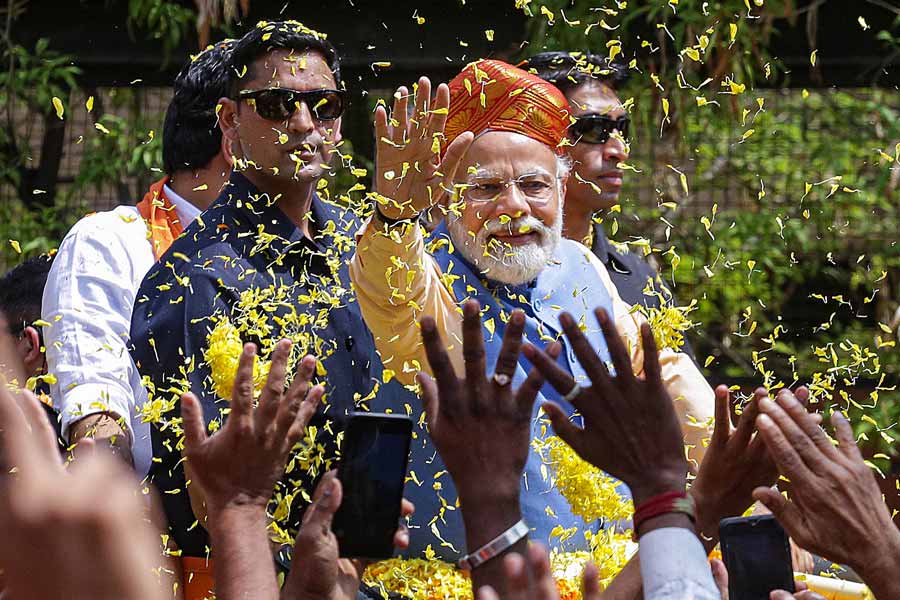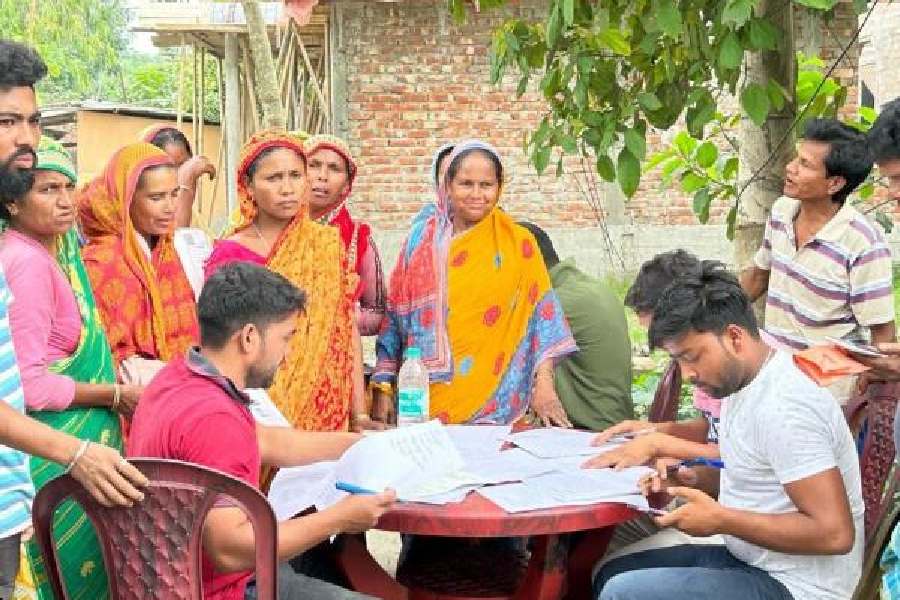Prime Minister Narendra Modi on Tuesday tweeted an open letter and a video message appealing to Karnataka’s electorate to use their ballot to help make the state “Number 1”.
Karnataka votes on Wednesday. According to Section 126 of the Representation of the People Act, campaigning has to close 48 hours before the close of voting to “provide a period of tranquil to the voters” to make up their mind. Campaigning for the Karnataka polls, therefore, closed at 6pm on Monday.
An Election Commission source claimed there was an opinion against taking action against the Prime Minister on the ground that his tweet had been posted from outside the state where polling will occur.
However, a former chief election commissioner told this newspaper: “The law is clear. Any election matter, that is, anything that can influence the outcome of the election, and that can be viewed through electronic media in the poll-going area, is not allowed 48 hours before polling ends.”
During the Tripura polls in February, election authorities had for the first time acted against tweets during the silence period. Those who received notices from the Tripura chief electoral officer included Dilip Saikia, a BJP national general secretary and MP from Mangaldoi in Assam — who was based outside the polling area.
Section 126 bans the soliciting of votes through public meetings, processions, TV advertisements or entertainment programmes during the silence period in the “polling area”.
Modi may also have been banking on room for leeway in Section 126, which doesn’t prohibit a general appeal to people to come out and vote.
However, Modi’s letter and video message hail the achievements of the “double engine” government and repeat the BJP’s election slogan, “E baariya nirdhara, bahumatata BJP sarkara” — an appeal for a clear majority — making it obvious that what they are making is not a general exhortation to vote but one to vote for the BJP.
The letter carries Modi’s picture as well as images of BJP national president J.P. Nadda and state BJP leaders. A tagline below says: “Press the lotus button, vote for the BJP.”
The video message, in which Modi largely repeats whatever he says in the poster, shows him against a background dotted with the BJP’s election symbol, the lotus.
The Congress has complained to the Election Commission of India (ECI) against Modi’s letter and video message.
In an urgent memorandum to the poll panel, party general secretary and MP Randeep Surjewala also cited interviews by Nadda and Union home minister Amit Shah as violations of the 48-hour silence period.
Surjewala reminded the Election Commission of six memorandums the Congress had earlier submitted complaining of violations of election regulations by Modi, Shah, Nadda and Uttar Pradesh chief minister Yogi Adityanath on which the panel had not acted.
“Prime Minister Shri Narendra Modi; Union Home Minister Shri Amit Shah; BJP National President Shri J.P. Nadda and other BJP leaders consider themselves above the law and the Constitution and presume that the ECI is either intimidated by the high offices they hold or that the ECI is too weak to act against them or hold them accountable for blatant and repeated violations of the Model Code of Conduct, the written instructions of the ECI as well as various other electoral laws,” Surjewala said.
“May I point out with all humility that this is a litmus test for this Hon’ble Election Commission of India to exercise its constitutional duty under Article 324 of the Constitution of India and hold those in power accountable.”
He added: “The alternative is clear. There will be no level playing field and instead there will be ‘free for all’, with those in power never being held accountable either to the ECI or to the rule of law. An unwritten but accepted norm would be that the ECI’s mandate extends only to Opposition parties and not to the PM and his colleagues.”
While Section 126 prohibits public meetings and “display to the public any election matter” on electronic media 48 hours before the close of polling, the Union law ministry has not acted on the Election Commission’s 2019 recommendation to bring the print media under the section.
Advertisements in newspapers are therefore allowed, after pre-certification by election authorities, during the 48-hour silence period. Door-to-door campaigning too is allowed.
On social media — which Modi used to propagate his letter and video message — political advertisements that are available to all users are prohibited during this 48-hour period, and the platforms are required to take any offending material down within three hours of being notified.
However, this does not include all political content but only those deemed to be advertisements, and the stricture does not apply to closed groups of social media users.
Interviews with news channels had been a grey area until the Election Commission’s aborted attempt to book Congress MP Rahul Gandhi for such an interview during the 2017 Gujarat polls. Since then interviews with news channels have been kept outside the ban.
Modi’s letter to Karnataka’s voters was posted in Hindi, English and Kannada while the video message was exclusively in Hindi, except for a few Kannada words at the beginning.
In the letter, Modi tells the voters that they have witnessed the work of the “double-engine BJP government over the last 3.5 years” and adds: “Our decisive, focused and futuristic policies are imparting momentum to the growth of Karnataka’s economy.”
The poster’s opening line says: “You have always showered me with love and affection, it feels like a divine blessing to me.”
Towards the end, it says: “Dream of every citizen of Karnataka is my dream. Your resolve is my resolve. When we come together and set our minds to a goal, no force in the world can stop us. I seek your blessings in the mission of making Karnataka the Number 1 state in the country.”
The Prime Minister had tweeted a similar open letter a day ahead of voting in Himachal Pradesh last year but couldn’t prevent the BJP losing to the Congress.












